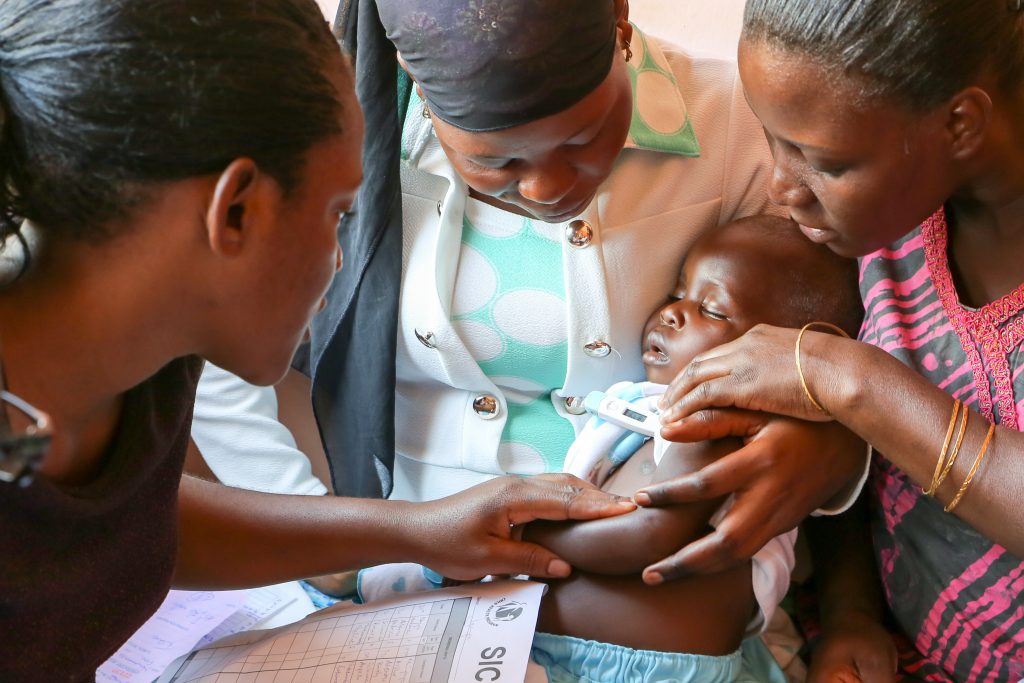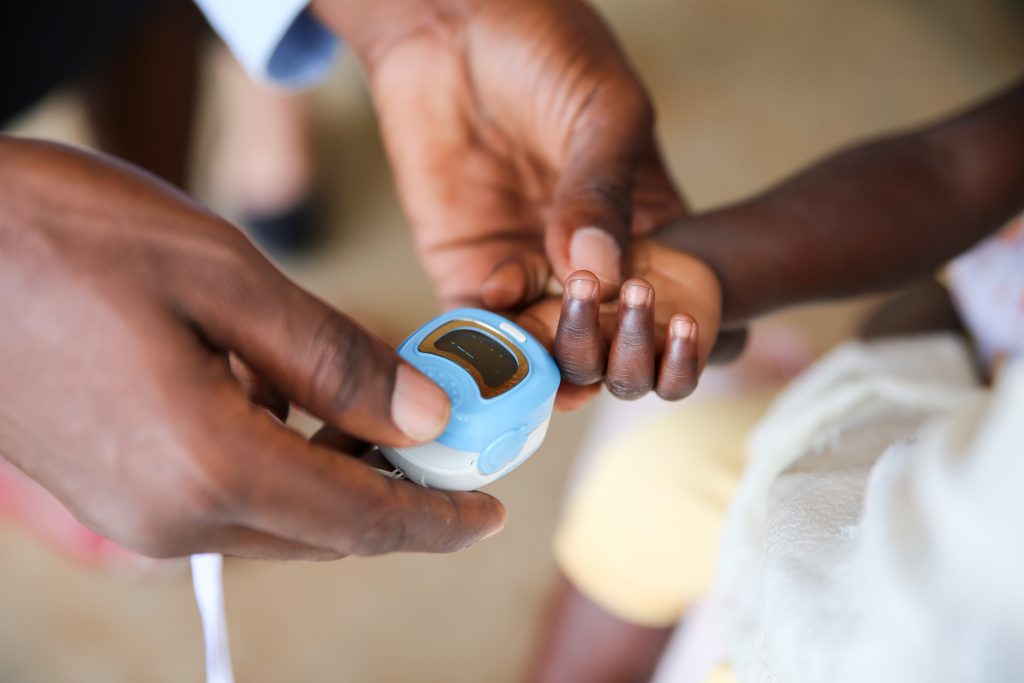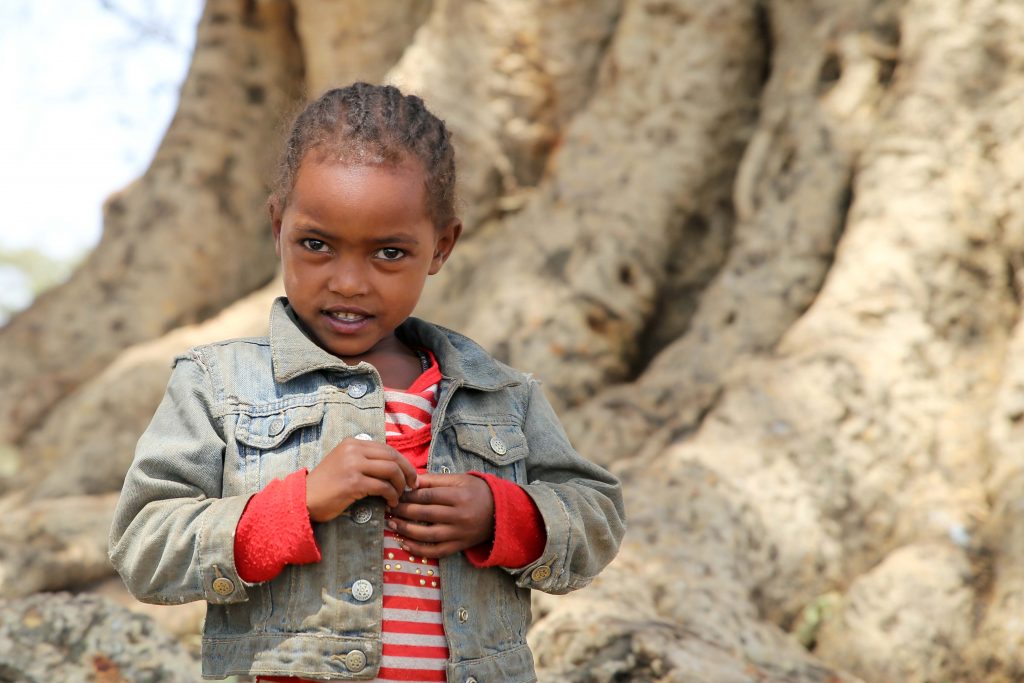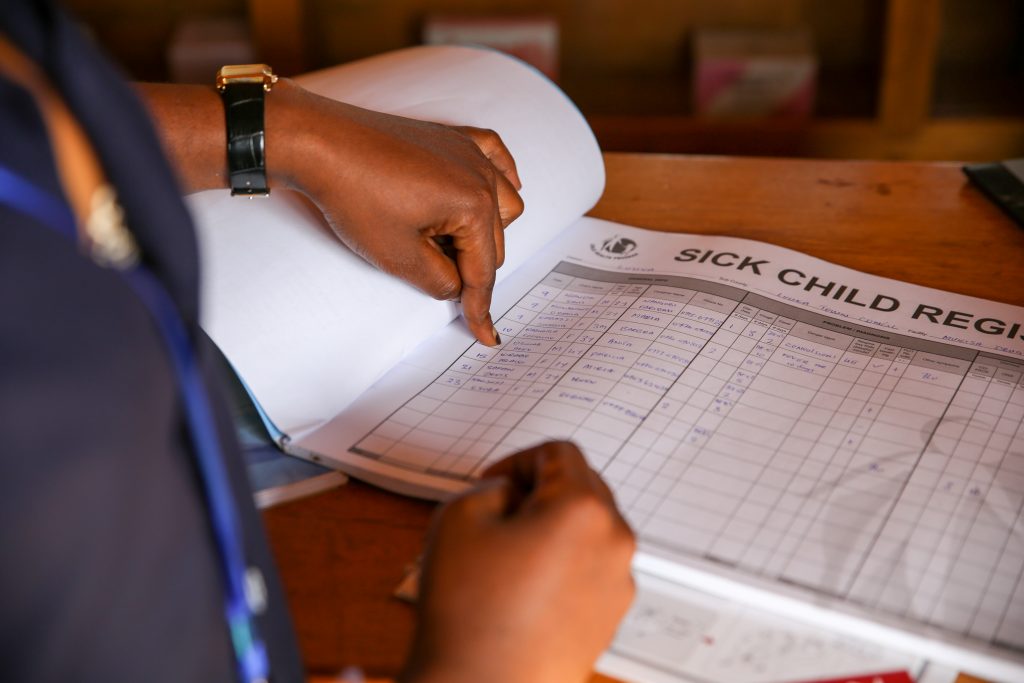Pneumonia is the leading cause of death for children globally, taking more lives annually than HIV, tuberculosis, and malaria combined. It is estimated that a child dies from pneumonia every 35 seconds.
Pneumonia, a severe respiratory infection in which a child’s lungs fill with fluid, makes it difficult for them to absorb and exchange oxygen. Breathing becomes challenging, especially for children. Tragically, millions of children die this way. While accurate and timely diagnosis and treatment can prevent most of these deaths, access to treatment is often unavailable in low-resource settings.
Approximately 75 percent of pneumonia cases can be prevented by the pneumococcal vaccine. Since 2011, CHAI has been working in Ethiopia, Tanzania, Malawi, Kenya, Uganda, and Nigeria to increase access to the vaccine, averting approximately 80,000 deaths from pneumococcal disease each year in those countries. For those cases that cannot be prevented by the vaccine, Amoxicillin dispersible tablets (DT) are the recommended treatment for bacterial pneumonia, and oxygen can be used to treat severe cases of pneumonia. Pulse oximetry is used to monitor a patient’s oxygen levels and can be used to diagnose hypoxemia (oxygen deficiency).
Since 2015, with support from the Bill & Melinda Gates Foundation, The ELMA Foundation, UNICEF, and Absolute Return for Kids, CHAI has been working with the governments of Ethiopia, Uganda, and Nigeria to improve access to treatment for pneumonia, focusing on children under 5. Preventing deaths from pneumonia requires engagement by a wide group of stakeholders, including implementing partners, the private sector, and perhaps most importantly, government.
Prompt care-seeking and correct diagnosis is critical to prevent deaths from pneumonia, which is why CHAI has worked at the global level, through the Diarrhea and Pneumonia Working Group, to create materials for caregivers and frontline health workers to ensure they have the knowledge and skills needed to save lives. These open-source, free materials are available for all users and easy to adapt to a local context. They help health workers and parents understand the signs and symptoms of pneumonia, showing them how to take the appropriate action to save a child’s life. These kits, which include educational posters, a caregiver flier, a flipchart story, a health worker training, and an adaptation guide, are available in different languages and for free download here.
Ethiopia
While Ethiopia met the MDG 4 target three years early, pneumonia continues to be one of the major causes of under-5 childhood morbidity and mortality; annual episodes of pneumonia in children under 5 are over 3.3 million, of which almost 400,000 become severe cases, resulting in approximately 35,000 deaths. In the past year, CHAI has been working with the Government of Ethiopia to improve the policy environment for key commodities for treatment of pneumonia, including oxygen, pulse oximetry, and Amoxicillin DT. The Ministry of Health, with support from CHAI and other partners, launched Ethiopia’s first National Roadmap for Oxygen and Pulse Oximetry this month, accelerating access to pulse oximeters and oxygen services for treatment, including at primary health facilities. The Ministry of Health is now calling on local and global partners to support the rollout of this new initiative to further address pneumonia morbidity and mortality in Ethiopia.
Nigeria
In Nigeria, where approximately 120,000 children under-5 die each year from pneumonia, CHAI has been working with the Government of Nigeria to create favorable policies for treatment, including the support of Nigeria’s first national-level oxygen strategy. CHAI is supporting the implementation of these policy changes at subnational levels, focusing on the states of Kaduna, Kano, and Niger. In these states, CHAI is working with the government to improve appropriate availability and usage of Amoxicillin DT, pulse oximetry, and oxygen therapy at secondary health facilities, while supporting government planning for the financial resources required to meet these objectives.
Uganda
Uganda—where approximately 15,000 children die each year from pneumonia—has made progress to increase access to life-saving commodities, including medical oxygen for the management of hypoxemia, one of the leading risk factors of pneumonia mortality. Oxygen has been prioritized in the 2014 implementation framework for Scaling Up Approaches to Protect, Prevent and Treat Diarrhea and Pneumonia. In 2016, the momentum for oxygen scale-up in particular has increased, as the Government of Uganda has developed a national oxygen implementation plan and has invested in regional oxygen plants across the country. In addition to providing national-level support for the oxygen implementation plan, CHAI has been working with the Ministry of Health to develop an integrated curriculum for the management of severe childhood illnesses, including pneumonia, and to pilot strategies to increase early detection and management of hypoxemia at higher-level health facilities. CHAI is working with local suppliers and the National Drug Authority to increase availability of Amoxicillin DT through the creation of a more competitive private sector market.
In just a brief period of time, CHAI’s experiences in Ethiopia, Nigeria, and Uganda have shown us that progress is possible. However, on this World Pneumonia Day, we must also acknowledge that we still have work to do. Together as a global community, we need to increase access to vaccines—as of 2015, only 37 percent of children globally have access to the pneumococcal vaccine. We need to continue to properly equip caregivers with the knowledge they need to act on behalf of their children. We need to continue to support governments with smart and targeted investments to help them build on their successes. We need to continue work to provide healthcare workers with the simple tools they need to accurately diagnose and enable treatment, and work with the technology community to continue to innovate, focusing on solutions for resource-limited settings. Please join with us as we commit to increasing the number of children receiving treatment for pneumonia and to making a difference in the lives of children across the globe.
To learn more about what you can do on World Pneumonia Day, please see here. For more information, on CHAI’s work to increase access to treatment for pneumonia, please contact Audrey Battu, Director of Essential Medicines at CHAI.









